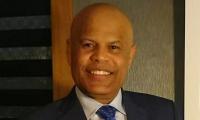There couldn’t have been a better gift to the nation than putting Shahbaz Sharif behind bars, as the all-time neat and clean government completed its first fifty days in office.
Shahbaz Sharif may be the leader of the opposition and may have been the longest serving chief minister of the country’s largest province, but he is a grandee of the old, corrupt order that made a mess of society, politics and the economy. In ‘Naya’ Pakistan, the patricians and the plebeians, the elite and the riff-raff, the mighty and the weak, the wealthy and the poor, everyone is equal in the eye of the law. Three cheers for our angelic prime minister and his saintly ministers and advisers.
That’s how the National Accountability Bureau’s decision to arrest Shahbaz Sharif for alleged abuse of power is being hailed by the ruling party and its supporters. The Sharifs made their bed, now they must lie in it. The elder Sharif has already been disgraced, disqualified, and convicted. Now it’s the turn of his younger brother.
The manner in which Pakistan’s most powerful political dynasty has been cut down to size sounds the death-knell for our decadent, moth-eaten and rotten-to-the-core political-cum-judicial system, which always gave preferential treatment to the mighty. Henceforth, the law will take its course even if heavens fall. So those who are questioning the treatment meted out to the Sharifs are completely devoid of a sense of justice.
All of the above is simple, and appealing, logic. But it’s based on two premises, the truth of which, far from being self-evident, is very much contestable. The first premise is that the current drive against corruption is out-and-out apolitical. NAB, the anti-graft watchdog, is actuated solely by a single consideration – to bring the corrupt, regardless of their stature, in the dock. The second premise is that the accountability is being done on an across-the-board basis with regard to both the start of investigations and taking them to their logical conclusion.
The principle of rule of law, to which both the PTI and NAB are avowedly committed, entails three things: One, the law has rational foundations and is not arbitrary in its content. For example, a law which penalises dissent or gives serious punishment for minor offences is arbitrary. Two, the law takes precedence over the will of a person and institution – however powerful. Three, the law is applied predictably, uniformly and openly. Those who act in a similar way must be treated by the authorities in a similar way and everyone must know that they have been treated so.
Thus the accountability process will be denuded of its credibility if it is selective. It goes without saying that the investigating and judicial institutions are as much subject to the law as the accused and the convict. Without the slightest intention to cast aspersions on the ‘historic’ job that NAB and the courts are doing to call to account the corrupt, a few points may be highlighted.
There is a strong impression that the current accountability drive is directed towards one political party to the benefit of another. It is alleged that in the run-up to the national elections, accountability was instrumental in giving the PTI an open goalpost to net the ball. This is not to suggest that the PTI’s electoral triumph was underpinned by accountability – for sure Imran Khan has a unique charisma – but it did ratchet down the PML-N’s capability to put up a fight. Nawaz Sharif was convicted very close to the general elections and now Shahbaz Sharif has been nabbed just a few days before the by-elections.
The speed at which the cases against the PML-N leadership were disposed of was also unprecedented. No doubt, both investigations and adjudication should run expeditiously. But when the same process goes at a breakneck pace in the case of one political party, while it moves at a snail’s pace in case of the rest, it is bound to set tongues wagging.
By law an independent organisation, NAB may have gone after the PML-N leadership of its own accord. However, since day one Prime Minister Imran Khan has been saying that, come what may, he won’t spare anyone. In a word, the anti-graft organisation can’t be autonomous if it’s under the thumb of the government. Being in thrall of the container culture, the ruling party wants to take credit for the accountability drive. At the same time, it is denying that it is interfering in the ‘clean-up’ operation.
Rule of law, the right to a fair trial and due process of law are noble principles without which democracy is a sham. But democracy or despotism, political battles are seldom won on the score of abstract principles. In politics, the only passport to success is power. Who should know this better than the House of Sharif?
Despite having so much in common, the Sharif brothers have been as different as chalk and cheese in their political positioning. Whereas Nawaz Sharif earned the reputation for bucking the system and throwing tantrums at the powers that be, Shahbaz Sharif has been an ardent exponent of the narrative that the politicians must draw in their horns and play second fiddle to the arbiters of last resort. Over the last one year, the PML-N’s politics has been characterised by a desperate attempt to bridge the chasm between the confrontational and reconciliatory narratives of the two brothers.
Nawaz’s disqualification and conviction catapulted Shahbaz into assuming the party’s command, which prefigured that the reconciliatory narrative would prevail in the PML-N. And that’s what happened. Having registered a measured protest against its supreme leader’s conviction, the PML-N failed to put up a big show on his return from the UK before he was imprisoned. After the election results were announced, the PML-N, together with the PPP, set aside the advice of smaller parties to boycott the new assemblies and go the whole hog in protesting the alleged rigging.
Instead, the PML-N and the PPP were content with demanding a parliamentary commission to probe the alleged rigging. For obvious reasons, the ruling party had little problem in acceding to the demand. Parliament may be the supreme institution but let’s not pin high hopes on any parliamentary commission. As it has an equal number of members from both the treasury and the opposition, the commission’s findings are a foregone conclusion.
Shahbaz’s political quietism is not the only factor which accounts for the opposition’s weakness. Despite crying foul, the opposition has been remiss in putting up a united front. As a result, it has failed to give a tough time to the government. Despite having been at loggerheads, Shahbaz and Asif Zardari – who is also trying desperately to keep the handcuffs at bay – have so much in common. Both believe in ducking and defending rather than taking up the gauntlet upfront. With these two champions of reconciliation in the van, the government was likely to have smooth sailing.
Shahbaz’s detention has once again brought his elder brother to the forefront. It’s a toss-up whether his leadership will be instrumental in overcoming the opposition’s languor.
The writer is an Islamabad-based columnist.
Email: hussainhzaidi@gmail.com
Twitter: @hussainhzaidi
Those who wield technology not only change their destiny but alter very definitions of power
Pakistan should, in the long run, aim for geographical diversification for its products to mitigate external shocks
Pakistan must first therefore undertake complete overhaul of its educational landscape
Regardless, climate crisis is a global pandemonium and unfortunately, it is excruciating
Once products are manufactured and ready for distribution, transportation further contributes to environmental harm
Effective foreign exchange regulation can also help prevent currency manipulation and illicit financial activities







